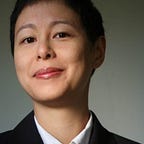Macau’s democrats can’t bet on democracy as an election issue
Two days before Macau’s legislative assembly election, on the last day campaigning was permitted, I travelled to Macau and talked to the enclave’s young democrats
It had been more than 15 years since I’d last visited Macau and as we drove down the Cotai strip, I could see why this once sleepy town with a gloriously kitschy casino is now known as the of ‘Vegas of Asia’.
On both sides of the avenue, casino-hotel complexes loomed - towers, glass, water, lights and more lights stretched out in front of me. As I took in this sight, the taxi driver piped up. “Not all the lights are on. Some of the hotels still haven’t fully recovered after the typhoon (Hato).”
It was as if she were apologizing. “Come back in another three weeks and it’ll be much more beautiful,” she added. “I’d tell you about all the free attractions and activities you could check out too, they’re really worth checking out. But I’m afraid they’re not available at the moment.”
The driver was obviously proud of her city but that pride had taken a severe battering from Typhoon Hato, the strongest typhoon to hit the former Portuguese colony in more than half a century. The storm caused more than US$ 1.4 billion in economic losses and claimed ten lives. It also led to severe flooding, widespread water shortages and knocked out power supplies.
There was widespread anger over the government’s failure to raise the alarm early enough to prevent people from going to work when the cyclone struck, it’s ineptitude in responding to the disaster and shambolic clean-up efforts.
“I’m furious with the government. We’re all very angry,” said the driver. “But I’m not going to vote. It won’t make any difference.”
So here we were, three weeks after the government bungled up the response to a major disaster, two days before a Legislative Assembly election and a disgruntled voter didn’t see the point in going to the ballot box. What was more, the typhoon — its aftermath and the poor city planning that contributed to the damage was not even a major election issue.
It’s hard to imagine a similar scenario in Hong Kong. Here, a government request to enlist the help of the locally stationed People’s Liberation Army garrison would be seized upon by opposition candidates as a move that would undermine autonomy and the One Country Two Systems principle. In Macau, the one politician who questioned the decision was roundly criticized and had to apologize.
Hongkongers trying to better understand their neighbouring Special Administrative Region are frequently told by locals that “Macau is very small” and “Macau is not Hong Kong”. The enclave has a population of around 650,000 people.
These refrains cropped up again when I visited the headquarters of the New Macau Association last Friday and asked if the party was expecting an upturn in voter turnout and votes for non-establishment candidates in light of the typhoon.
“We hope so, but it’s hard to say,” said former association vice-president Jason Chao.
His friend and colleague Wong Kin-long, a student at the Chinese University of Hong Kong and fourth on the list of the Association’s candidates in the election elaborated: “People in Macau can be very dissatisfied with the government, with officials but they don’t link official incompetence or their grievances to the system.”
The idea that injustice is deeply entrenched within the political structure and that therefore systemic change is needed is not one that resonates widely with the populace. Macau’s legislature has fewer directly elected seats than Hong Kong’s does and still retains a number of seats that are directly appointed by the Chief Executive.
But when it comes to election time, candidates, even pro-democracy ones, do not highlight calls for greater democracy, let alone for universal suffrage. Instead, they concentrate on livelihood issues — such as public housing — in order to connect with voters.
It seems a far cry from 2014, when Macau seemed to undergo a civic awakening of sorts. In May that year more than 20,000 people took to the streets to oppose a controversial bill that would have given outgoing officials lavish retirement packages. Later that year, more than 1000 people took part in a rally to support Hong Kong’s Umbrella Movement for universal suffrage on China’s National Day.
Roy Choi, the founder of pro-democracy news site Macau Concealers says democratic reforms were more prominent as an election issue in the legislative polls of 2013. Since then, the overall climate has been affected by events in Hong Kong. The failure of the Umbrella Movement to win any concessions, the vilification and prosecutions of those involved, and what is seen as the chaos and divisions that have occurred since then has had an impact on Macau’s civil society and public opinion.
For now, the shift in emphasis from democratic reform to bread and butter issues seems to have paid off for Macau’s non-establishment camp, including its young democrats — the association’s Sulu Sou became Macau’s youngest ever legislator at 26. Overall, the non-establishment side managed to hold on to four out of 14 directly elected seats and increased their voter base on the back of a slightly higher turnout rate (this despite earlier fears that a split between the New Macau Association’s veteran lawmakers and its Young Turks could also split the non-establishment vote).
But even in victory, Sou — who had been smeared as an “independence advocate” by China’s Global Times during the campaign, was keen to play down his progressive credentials.
“I’m not radical. Most definitely not a radical. I may just speak a bit louder,” insisted Sou. “But in Macau even a fly flying by can trigger a wave.”
*Also, see my story in Hong Kong Free Press: Political storm: Macanese rebuff judging eyes from Hong Kong, as army aids typhoon clean-up
